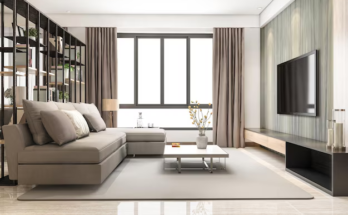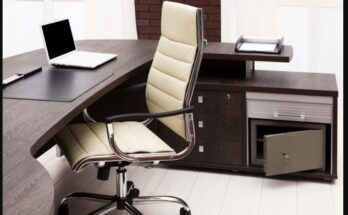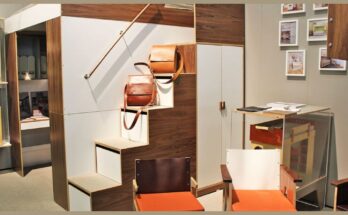In today’s fast-paced world, deciding about furnishing your home can be challenging.
Do you rent furniture or buy it outright?
Each option has benefits and drawbacks, depending on your lifestyle and needs.
Let’s explore this topic in depth to help you make an informed choice.
Contents
- 1 Introduction
- 2 Understanding Your Lifestyle Needs
- 3 Pros of Renting Furniture
- 4 Cons of Renting Furniture
- 5 Pros of Buying Furniture
- 6 Cons of Buying Furniture
- 7 Cost Comparison: Renting vs. Buying
- 8 Flexibility and Mobility
- 9 Quality and Durability
- 10 Environmental Impact
- 11 Personalization and Style
- 12 Long-Term Financial Considerations
- 13 Case Studies: Real-Life Scenarios
- 14 Conclusion
- 15 FAQs
Introduction
When it comes to furnishing your home, the decision to rent or buy furniture can significantly impact your lifestyle. Whether you are a student, a young professional, or constantly moving, the choice between renting and buying furniture is crucial.
This article will delve into the pros and cons of each option to help you determine which is best for you.
Understanding Your Lifestyle Needs
Before making a decision, it’s essential to understand your lifestyle needs. Are you frequently relocating for work? Do you prefer keeping up with the latest furniture trends? Your answers to these questions can guide you towards the best choice for your situation.
Pros of Renting Furniture
Renting furniture comes with several advantages:
Flexibility
Renting allows you to change your furniture as often as you like. This is perfect for those who enjoy keeping up with the latest trends or might need to move frequently.
Cost-Effective in Short-Term
For those who need furniture for a short period, renting can be more cost-effective. You avoid the high upfront costs associated with buying furniture.
No Maintenance Worries
The company typically handles maintenance and repairs when you rent furniture, saving you time and money.
Cons of Renting Furniture
While renting furniture has its perks, there are also downsides:
Long-Term Costs
Over time, renting can become more expensive than buying. The monthly rental fees can add up significantly if you rent for an extended period.
Limited Personalization
Rental furniture might not fully match your style preferences. You’re limited to what the rental company offers, which might not suit your taste.
Pros of Buying Furniture
Buying furniture can be an excellent investment for many reasons:
Ownership
When you buy furniture, it’s yours. You have complete control over it and can personalize it to fit your style perfectly.
Long-Term Savings
Though the upfront cost is higher, buying can be cheaper in the long run than renting. Once you’ve paid for it, it’s yours without ongoing fees.
Customization
You can choose pieces that perfectly fit your home and style. Customization options are limitless when you own your furniture.
Cons of Buying Furniture
Despite the advantages, buying furniture also has its disadvantages:
High Initial Costs
Purchasing furniture requires a significant upfront investment, which can be challenging for those on a tight budget.
Maintenance Responsibility
As an owner, you’re responsible for maintenance and repairs, which can add to your expenses over time.
Cost Comparison: Renting vs. Buying
Let’s break down the costs:
Upfront Costs
- Renting: Typically low or no upfront cost.
- Buying: High upfront cost.
Monthly Costs
- Renting: Ongoing monthly fees.
- Buying: No ongoing fees after the initial purchase.
Long-Term Costs
- Renting: Can become more expensive over time.
- Buying: More cost-effective in the long run.
Flexibility and Mobility
Flexibility is a significant factor for many people:
Renting
Perfect for those who move frequently. You can easily change or return furniture without much hassle.
Buying
Ideal for those settled in one place. However, moving furniture can be cumbersome and costly.
Quality and Durability
The quality of furniture can affect your decision:
Renting
Rental furniture may not always be of the highest quality. It’s designed to be durable but might lack the finesse of bought pieces.
Buying
You can choose high-quality furniture that lasts longer, though it requires a higher initial investment.
Environmental Impact
Consider the ecological footprint:
Renting
Renting can be more sustainable as it promotes reusing furniture. However, the frequent turnover can lead to higher emissions due to transportation.
Buying
Buying durable, high-quality furniture can be environmentally friendly if you keep it long. However, the production process has a significant environmental impact.
Personalization and Style
How much does personalization matter to you?
Renting
Limited options for personalization. You might have to compromise on style.
Buying
There are endless possibilities for customization and personalization. You can create a home that truly reflects your personality.
Long-Term Financial Considerations
Think about your long-term financial goals:
Renting
It may drain resources over time without building any equity.
Buying
It is a significant investment but can be considered an asset. It might also increase the value of your home.
Case Studies: Real-Life Scenarios
Scenario 1: The Young Professional
John, a young professional, moves cities every two years for his job. Renting furniture allows him to adapt to new living spaces without the hassle of moving furniture.
Scenario 2: The Family Homeowner
Sarah and her family plan to stay in their home for the next ten years. Buying furniture allows them to invest in quality pieces that suit their long-term needs and personal style.
Conclusion
Whether to rent or buy furniture ultimately depends on your lifestyle, financial situation, and personal preferences. If you value flexibility and short-term affordability, renting might be the way. However, buying could be the better option if you prefer long-term savings and the ability to personalize your home.
FAQs
1. Is renting furniture cheaper than buying it?
It can be cheaper in the short term, but renting may become more expensive over a longer period than buying.
2. Can I customize rented furniture?
Customization options are limited with rented furniture. You might have to choose from what the rental company offers.
3. What happens if rented furniture gets damaged?
Most rental companies offer maintenance and repair services, but additional charges for significant damage might exist might exist.
4. How does renting furniture work?
You choose the furniture you need, pay a monthly fee, and the rental company delivers and sets it up. Maintenance is usually included.
5. What are the benefits of buying furniture?
Buying furniture allows for complete ownership and customization and can be more cost-effective in the long run. It’s also an investment that can increase your home’s value.
If you gained new insights from this article, explore our blog, Gimkit, for more enlightening content.



